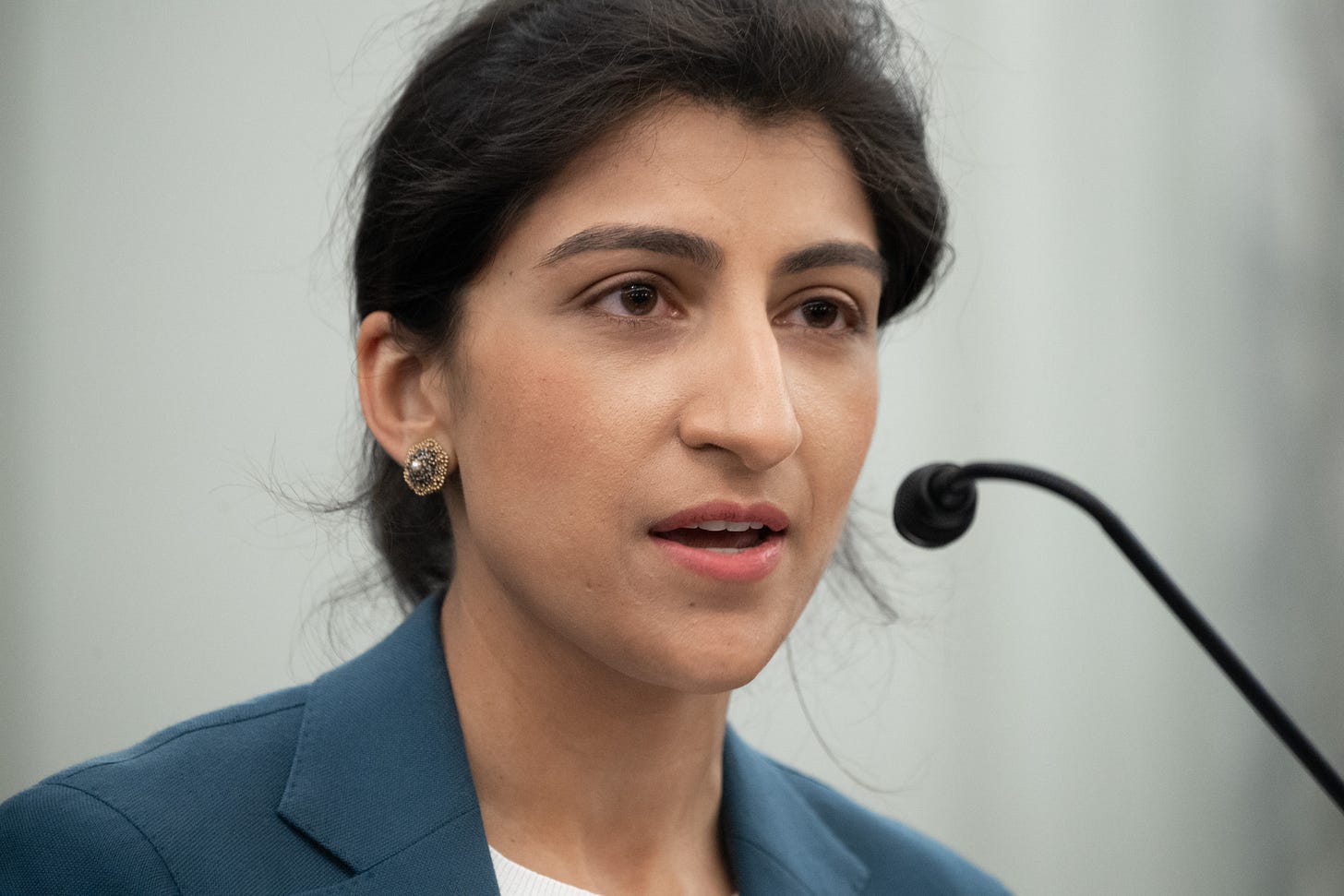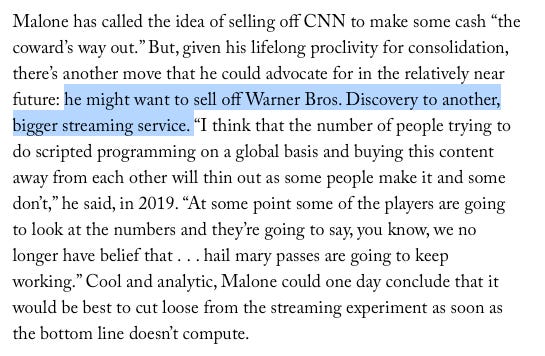Oy! MGM, Amazon and the FTC, Explained
ESG on what the federal challenge means for entertainment and how we got here

By The Entertainment Strategy Guy
Well, merger mania can’t make up its mind. It’s either exploding or about to come tumbling down. Take this headline from The Information:
On the one hand, the FTC may fight hard to stop Amazon from acquiring MGM. But then just last week, Richard Rushfield speculated that Comcast’s ultimate goal may be to merge with Warner Bros. Discovery! Indeed, that was the takeaway from the New Yorker article on CNN and John Malone:
Malone — the largest shareholder at Discovery — has repeatedly argued that, to survive the streaming wars, all the legacy studios will need to get bigger.
For those who haven’t followed me, I find mergers and acquisitions fascinating. But not in the way most in the entertainment and business trades do. I don’t like M&A. Or corporate consolidation. Is it too much of a stretch to say I think rampant consolidation led to (or at least made worse) all our economic problems, from inflation to slow growth to income inequality? No, it’s not!
But ignore my personal political beliefs.
When it comes to strategy, I think the governmental regulation winds are a-blowing. For years, Washington D.C. and Brussels basically allowed any and all consolidation as long as the promised prizes of “economic efficiencies” were promised (and yeah, later not delivered). Investors like John Malone benefitted from this through building his cable empire through consolidation, and ultimately selling it to AT&T. Amazon too has benefitted from buying nascent competitors.
But the era of blank check approvals for consolidation may be ending. And if it does our strategic thinking needs to shift too.
So let’s go deep on that today. The history of M&A in America and entertainment and how that age may be at an end. And why Amazon may feel that first.
A Brief History of Antitrust
Stay with me here, I’ll bring us back to the present after this recap of how we got here.
To broadly summarize, back in the day — the late 19th century — the modern day conglomerate was born when firms like U.S. Steel and Standard Oil began monopolizing the industries driving industrialization in the U.S.. And the politicians got angry. Because monopolization is inherently bad. So Congress acted to pass the Sherman Antitrust Act. (My thinking on antitrust has been heavily influenced by Matt Stoller of the American Economic Liberties Project. Read this piece for a good intro at his Substack.)
And while enforcement ebbed and flowed for most of the 20th century, regulators looked askance at a lot of mergers and tried to undo the worst. (AT&T and Microsoft are examples of how breaking up large monopolies can unleash innovation in communications or the internet.)
Alas, it couldn’t last. Again, to overly summarize, 1970s-1908s judicial thinker Robert Bork and Reagan favorite — with help from the Federalist society, the Chamber of Commerce, big business, and others — overturned the antitrust system. Instead of assuming that monopolization was bad on its face, Bork pushed something he called the “consumer welfare standard”, which meant that mergers and acquisition were only prohibited if they hurt customers, and the only hurt that mattered was prices. This also wasn't a Republican-only fat cat movement: Justice Stephen Breyer believed in the consumer welfare standard too.
The result was basically the end of antitrust as a break on corporate consolidation starting in the 1980s. In industry after industry, the number of top players dwindled.
Consolidation Comes to Entertainment
When we talk strategy or disruption, we often ignore the role of federal government. New technology? We love to write and read about that. The role of new FTC regulations? Boring.
Smart leaders don’t make that mistake. Some biz strategists saw a world of more mergers and consolidation, and took advantage.

Comcast, led by Brian Roberts, aggressively bought up rival cable firms and NBCUniversal, which is itself a conglomeration of smaller entertainment first. Disney under Bob Iger bought a bevy of companies (Pixar, Lucasfilm, and Marvel), but arguably Michael Eisner’s purchase of Capital Cities/ABC (which owned ESPN) was more important. Then Iger bought 21st Century Fox, which ended one of the major studios. And he bought it from Rupert Murdoch, who built his empire through acquisitions. Discovery itself used to be a small brand, but bought rival cable channels, and eventually the Scripps networks, doubling its cable channels, and then bought the Warner Bros. assets from AT&T.






